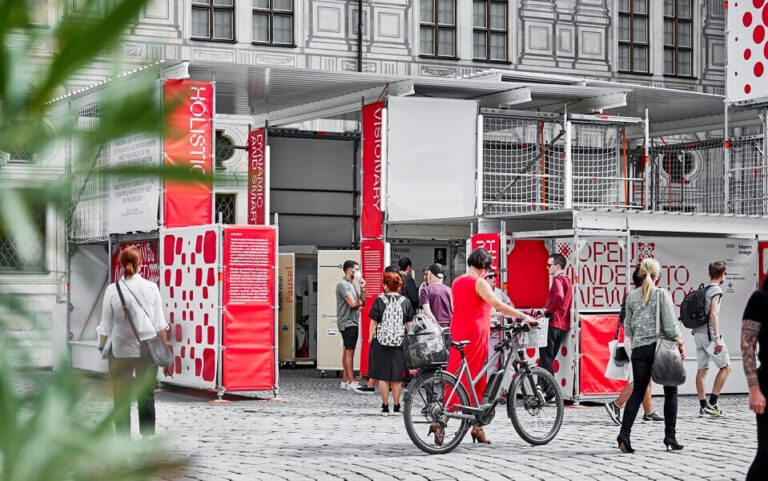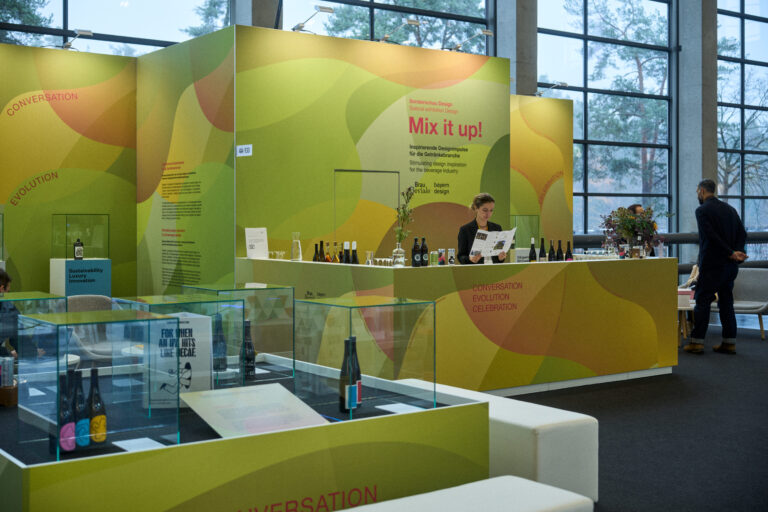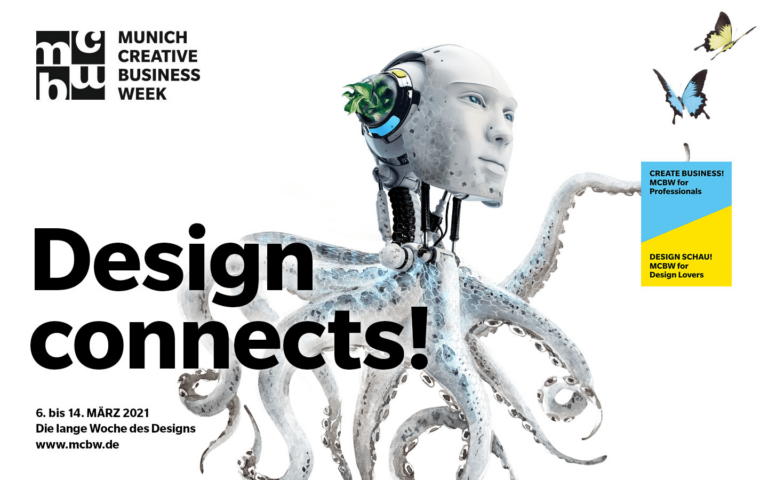Press release: bayern design at IAA Mobility Summit 2023
A bayern design exhibition about sustainable mobility design
Nuremberg/Munich, Germany – The bayern design curated exhibition titled Unknown Perspectives. Design for Sustainable Mobility will illustrate design perspectives on connected and environmentally friendly mobility in a future so far unknown. By creating scenarios and space for opportunities, designers facilitate interdisciplinary collaboration and drive sustainable innovation in the automotive and bicycle industries as well as in the railway sector. Focus of the exhibition will be on interactions among users and with materials, construction, and designed objects and spaces in which design enables usability and positive experiences as well as the creation of identification with sustainable solutions. Within the presentation, perspective will switch from the micro to the macro level – from sustainable materials for interiors and AI-based wheel rim construction to designed objects such as ergonomic unisex e‑bikes and new mobility spaces in trains. Unknown Perspectives. Design for Sustainable Mobility will demonstrate where design aids the creation of the system that is mobility and furthers it significantly.
Material: rattan
Even today, design offers a variety of methods and strategies to improve the ecological impact of materials and natural resources in the automotive industry. For example, by highlighting the specific characteristics of materials made from renewable or recycled resources design can enhance their attractiveness to users. In addition, using biodegradable or recyclable monomaterials that can be separated makes reusing them easier. Because design helps visualize creative and unconventional processing and application options, it also plays a vital role in the development of materials.
A lightweight construction material drawn from the rattan palm – karuun® – will be featured in the exhibition. An innovative and sustainable nature-tech material, karuun® opens up new design and application opportunities for the automotive and other industries. The rattan used for this novelty material is hand-harvested by local farmers in Indonesia, made into blocks using energy-efficient processes, and then transformed into veneers and panels. Because rattan depends on biodiversity for its survival, its cultivation helps preserve tropical forests and thus contributes a great deal to the modern circular economy. The design studies and vehicle interior components that will be displayed will show the vast range of uses and the aesthetic bandwidth of this sustainable nature-tech material. The innovative karuun® was developed in cooperation with Innovationszentrum Lichtenfels of the Upper Franconia region of Bavaria.
Construction: wheel rims
Design perspectives and methods help vehicles be built and produced in a more efficient and sustainable manner. Well-designed vehicle elements require fewer materials and produce less waste. Moreover, aerodynamic design and lightweight construction ensure higher energy efficiency during the vehicles’ use stage – crucial for electric cars. Designers employ AI and other innovative technologies as tools. Their holistic view always is geared towards the application and importance of innovation to mankind and is vital for the sensible steering of AI-driven processes.
The FelGAN project allows the creatives involved to draw from a virtually limitless pool of ideas. In practice, FelGAN works either by rapidly putting forward a large number of photorealistic design options or by recombining existing design principles in a targeted manner. Hence, the system provides the Audi Rim Design team with a type of unconditioned idea hub, and designers can use it to experiment with shapes, colors, surface structures, and other parameters effortlessly and in real time. FelGAN was developed and implemented jointly by Audi’s IT and design departments.
Object: unisex bicycle
Surface, interface, and touchpoint design at the object level makes sustainable mobility accessible to a large target group and fosters identification and acceptance. Universal and diverse design of vehicle hardware is crucial in particular for shared mobility. At the same time, digital interface design can enhance the individualization of mobility experiences. However, digital interfaces must have the ability to be updated and individualized.
The centerpiece of the exhibit titled Vässla Pedal is a unisex bicycle frame designed for the most diverse group of users possible regardless of gender or height. Instead of standardized 28-inch wheels, the bicycle features 24-inch wheels, thus facilitating daily commuting in urban environments and increasing agility. Thanks to the 2.5‑inch-wide wheels, no additional shock absorbers are needed. The ergonomic seat of the bike designed by Zanzotti Industrial Design of Munich jointly with Vässla reduces pressure on the wrists and strain on the neck. The minimalist handlebars do not feature any operating elements or cables and the front and rear lights have been integrated formally into the frame. Users can place a smartphone in the integrated holder and use it as a digital interface for navigating, thus increasing the longevity of Vässla Pedal.
Space: train compartments
Design creates spaces within and outside of vehicles. Innovative spatial settings and atmospheric designs improve the quality of the stay on board and promote undisturbed travel or social interactions in shared or individual mobility settings. The design of new vehicle models and infrastructures facilitates space-efficient and intermodal mobility in urban and rural areas. Space design is particularly important to address diverse needs for sustainable mobility and to increase user acceptance and identification of and emotional connection to the means of transportation.
The objective of the Passenger First Mobility Ecosystems developed by N+P Innovation Design and Siemens Mobility is to design a variety of concepts for the interiors of future high-speed trains for the global market. The design focuses on passengers’ diverse requirements and usage scenarios for which numerous ideas have been visualized based on diverse personas and mobility options. These designs address an ever-more variegated group of potential users.
Meet the experts – Design meets Mobility: panel talk & dialog
As part of bayern design’s Unknown Perspectives. Design for Sustainable Mobility exhibition, on September 5 design experts Christiane Bausback (N+P Innovation Design), Manuel Kallenberger (Karuun), Daniele Sirigatti (Audi), and Christian Zanzotti (Zanzotti Industrial Design) will answer trade visitors’ questions at the stand titled Bavaria. Land of Innovation hosted jointly by the Bavarian State Ministry of Economic Affairs, Regional Development and Energy and Bayern Innovativ. Following a brief panel discussion starting at 2:30 p.m., the experts will be available to talk with trade visitors from 3:00 p.m. onwards at the IAA Mobility Summit 2023, Hall B1, stand E30.
The Melville Brand Design agency of Munich supported bayern design in creating the corporate design for this exhibition.




